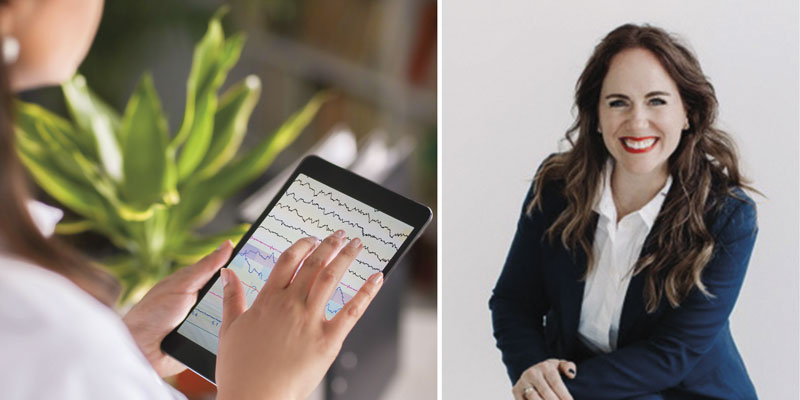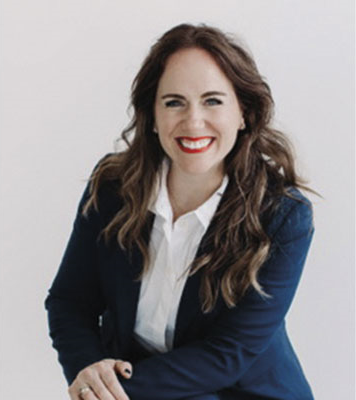Dr. Kalli Hale writes about how improving dental sleep medicine skills is an ongoing mission that takes education, patience, communications, and setting expectations.
 by Kalli Hale, DDS, MPH, D.ABDSM, D.ABSB
by Kalli Hale, DDS, MPH, D.ABDSM, D.ABSB
During a break session at a collaborative conference for sleep, a physician colleague caught me checking a sleep test from my computer. Recognizing I was disappointed in the numbers, he patted me on the back and said “…don’t be upset, those are good results. You can’t cure them all.”
As I mentioned in my first article, my journey as a dental sleep medicine dentist turned my world upside down. Transitioning from full time general dentistry to a focused practice of airway dentistry, while simultaneously being blessed to bring my passion into many lecture circuits has been a wild ride! But even with all of my wins in my private practice cases, behind the scenes, I was struggling. I had never felt more fulfilled, or experienced more growth in my practice, but at the same time, I was somewhat discouraged. I realized I wanted to cure them all!
Ingrained in our profession is a level of self criticism and extreme precision (where “a millimeter is a mile”) that is rarely seen in other parts of healthcare. The contacts must be tight, the crown margins must be sealed, and the shade match must be perfect. While I have come to realize we hold ourselves to unrealistic expectations of perfection in general dentistry, this is where dental sleep medicine stands in stark contrast…
The First Thing I Got Wrong? Thinking I Would Get It Right Every Time.
When you first start out, by screening your patients, you get a slew of objective data: O2 scores, AHI stats, heart rates, etc.. I stumbled into the impossible universe where I believed I would have a positive impact on all these metrics every time. Impossible goals lead to a sense of personal failure and inadequacy that has no place in our minds. We fail to remember that the airway is dynamic; the level and severity of the soft tissue collapse is just one of many factors determining the success of oral appliance therapy (OAT). For example, one person may titrate perfectly with your go-to mandibular advancemen device (MAD), but not the other. While I was successful hundreds of times more than I was not, there were times that the burden of managing this disease was heavy. When questioning dentists who “dabbled in sleep” why they stopped offering the services, the common response was “it was too hard and didn’t always work.” What I can assure you is, with time and more experience, the conversations with your patients will drastically improve, as did mine! You can help your patients with their sleep, their quality (and longevity) of life, and improve their healthspan better than any other provider in this space!
You can help improve healthspan better than any other provider.
Communication and setting expectations are the hardest part of dental sleep medicine. Understanding that this is “healthcare in the mouth” (not general dentistry) is important! Dentistry is just as integral to overall patient health as any other medical discipline. Did you know, in medicine, a 10-20% success rate with a new therapy is considered a “success”?1 This blew my mind! Can you imagine if 80-90% of our fillings failed? I hope that helps give context to the difference in treating a simple disease (e.g., cavities) versus a complex disease (e.g., OSA).
As you progress into airway dentistry, the patient cycle will remain the same: screen, sleep test, diagnosis, appliance selection, and titration sleep test. The rubber meets the road when you are forced to go backwards in that cycle. This is the hard part. “Why isn’t the appliance working?”, or “I should have warned the patient that…”. The questions running around in your mind all contribute to the discouraging devil on our shoulder, but we cannot let that devil win! Yes, there are challenges, but you are a life-long learner – go learn! There are many ways we can progress towards “expert” level and it all starts by asking the right questions.
By working together, this is where airway dentistry has the chance to set itself apart. We collaborate in order to help our patients, to increase our effectiveness, and to be better healthcare providers. We should recognize that an open airway is the very cornerstone of all health. There is no profession more qualified to help patients suffering from OSA than dentistry. Do not let your lack of knowledge, or fear of failure, be the barrier that keeps your suffering patients undiagnosed or undertreated. Get educated and empower yourself to add these life-giving services to your practice. With proper education and mentorship programs, we will give our profession the respect it deserves and help our physician colleagues save millions of lives.
Improving dental sleep medicine skills can entail finding out how to provide better screening, more efficient clinical workflow, and refining patient selection. Find out more in “Precision Medicine in a Dental Sleep Practice,” here: https://dentalsleeppractice.com/ce-articles/precision-medicine-dental-sleep-practice/
- Chi Heem Wong, Kien Wei Siah, Andrew W Lo, Estimation of clinical trial success rates and related parameters, Biostatistics, Volume 20, Issue 2, April 2019, Pgs 273–286, https://doi.org/10.1093/biostatistics/kxx069


 Kalli Hale, DDS, MPH, D.ABDSM, D.ABSB, is passionate about how our teeth affect our systemic health – the link between chronic jaw infections, periodontal disease, and subsequent heart problems. Her training in obstructive sleep apnea has transformed both her personal and professional career. Dr. Hale is a Clinical Advocate for VIVOS Therapeutics and works with dentists around the country to develop clinical protocols for the treatment of mild to moderate obstructive sleep apnea and sleep-disordered breathing. Her work in pediatric expansion and sleep-disordered breathing catapulted her speaking career and she lives by the slogan “we have to stop getting it wrong, for our kids.” She is faculty for the Dental Success Network, a key-opinion leader for Candid, and the Chief Dental Officer for Toothpillow. She travels monthly across the U.S. and abroad to teach dentists about Obstructive Sleep Apnea. Learn more about her sleep mentorship program at
Kalli Hale, DDS, MPH, D.ABDSM, D.ABSB, is passionate about how our teeth affect our systemic health – the link between chronic jaw infections, periodontal disease, and subsequent heart problems. Her training in obstructive sleep apnea has transformed both her personal and professional career. Dr. Hale is a Clinical Advocate for VIVOS Therapeutics and works with dentists around the country to develop clinical protocols for the treatment of mild to moderate obstructive sleep apnea and sleep-disordered breathing. Her work in pediatric expansion and sleep-disordered breathing catapulted her speaking career and she lives by the slogan “we have to stop getting it wrong, for our kids.” She is faculty for the Dental Success Network, a key-opinion leader for Candid, and the Chief Dental Officer for Toothpillow. She travels monthly across the U.S. and abroad to teach dentists about Obstructive Sleep Apnea. Learn more about her sleep mentorship program at